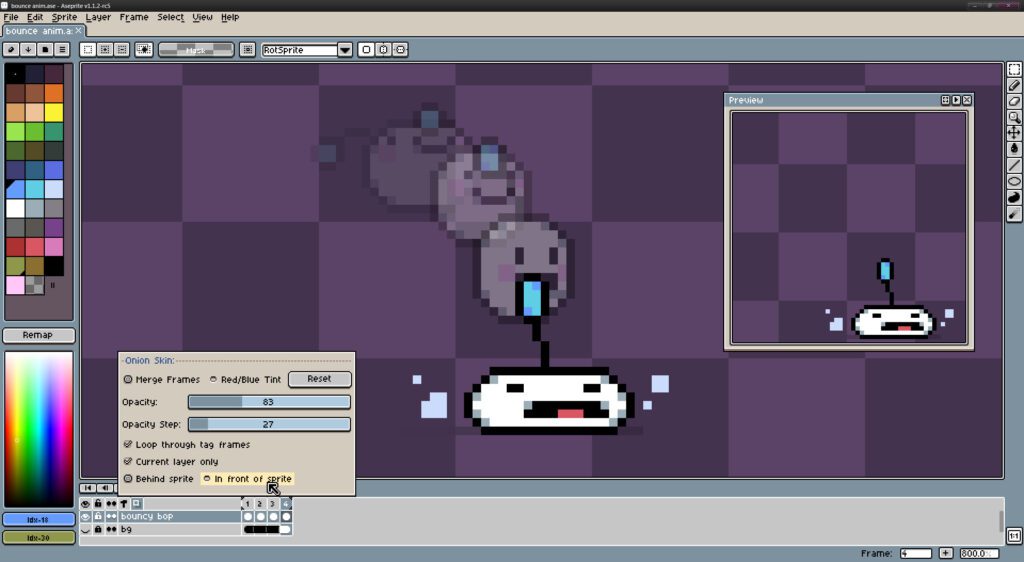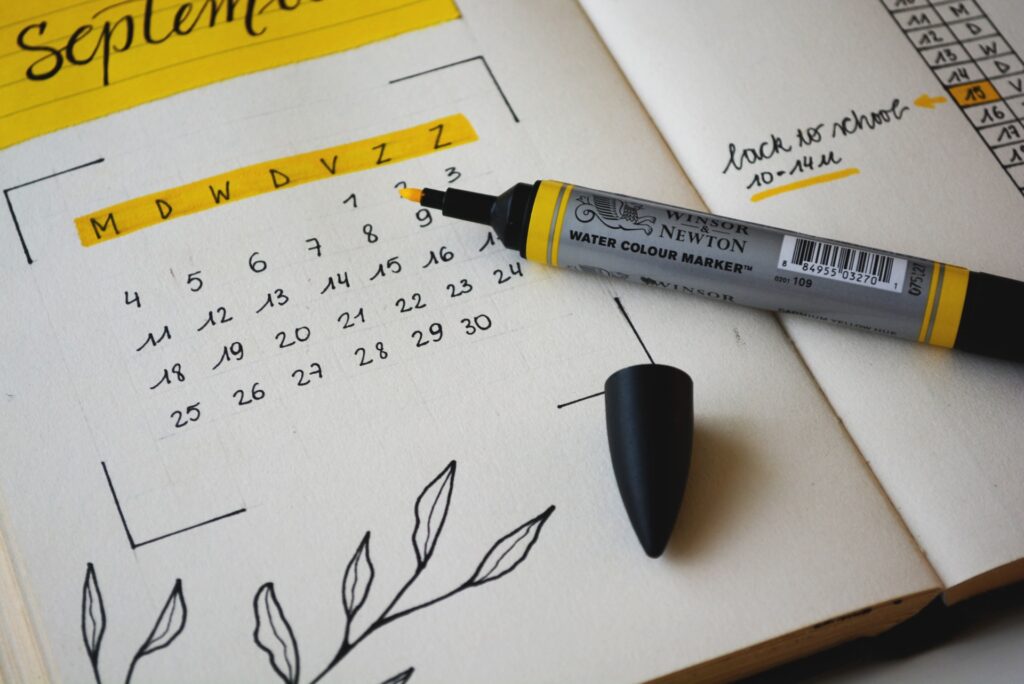Game development is an incredibly broad (and well-paying) field. It encompasses everything from writing lines of code to implementing complex systems to crafting engaging narratives to creating the visuals and sounds of a game. There are many possible roles one could pursue in this highly creative industry, but doing so in a full-time job at a studio might leave one longing for more flexibility.
This is where freelancing comes in offering huge advantages. As your own boss, you get to hand-pick projects aligned with your passions and skills. You also enjoy the freedom to set your own working hours and location, making for a great lifestyle! However, actually becoming a professional freelancer in this industry takes a lot of time and effort.
In this article, we’ll explore how to be a freelance game developer, delving deeper into the core skills needed to work in the field while also proving the steps to unlock your full potential as a freelancer. Whether you’re in IT looking to transition into game development or an aspiring newcomer, keep on reading for a complete guide on how to kickstart your freelance game development career!
How to be a freelance game developer: skill requirements
When considering a career in game development as a freelancer, the first thing you have to do is assess your skill set and define your specialization. This area is subdivided into three big niches:
- Game design: these professionals are concerned with visualizing and ideating the best possible game. They are also the masterminds behind the universe, setting, unfolding narratives, compelling characters, and mind-boggling challenges. They might even have a say on the art style – it can tell a lot about the desired atmosphere of a game;
- Game art: this niche is all about making the assets with which players will interact, which includes, but isn’t limited to 2D icons, 3D models, animations, particle effects, sound effects, background music, textures, landscapes, interiors, and environments. They often work with software like Photoshop, After Effects, FL Studio, Audacity, Blender, and Maya to name a few;
- Game programming: game developers in this niche work on assembling the final product by carefully following the game design’s decisions and integrating, through thousands of lines of code, the aforementioned assets into a single masterpiece. These professionals are also responsible for fixing bugs, optimizing performance, and porting the game over to other platforms if applicable.
While we recommend newcomers specialize in one area, nothing is stopping you from becoming an expert in all three – it’s just that you’ll see faster results if you focus on one niche of game development instead of trying to become a jack of all trades.
Now that you know the three core subdivisions of game development, let’s talk about the skill requirements. Indeed, each niche focuses on a different set of skills, but some cut across all spheres of game development.
First and foremost, you need to be proficient in your software of choice. Programmers must have extensive knowledge of their preferred game engine (like Unity, Unreal Engine, or Godot) and their programming languages (like C#, C++, or GDScript respectively). And so should designers – while not a strict requirement, understanding the limitations of the game engine and even implementing quick prototypes to test out a concept can make you much more valuable.
For artists, this means becoming an expert in digital art programs. If you’re going to work mostly with 2D assets, then Krita (free), Photoshop (premium), and Aseprite (paid program for pixel artists) will be your friends. For 3D artists, there’s Blender (free and open-source), Maya (premium), ZBrush (premium), and After Effects (premium, mostly used for particle effects). Those looking to provide audio-related services will find themselves using Audacity (free), Ableton Live (premium), or FL Studio (premium).

While some developers won’t need mathematical and analytical abilities, they’re always welcome in this dynamic industry. Programmers in particular need a solid grasp of math, logic, algorithms, and data structure to implement whatever is coming their way. Knowing how to work with numbers is also nice to have as a game designer because they’re the ones in charge of creating the progression systems and fine-tuning the game, but not a hard requirement.
And, while we’re at it, don’t neglect your soft skills! Communication is key when collaborating with remote clients and teams, especially when you need to ask for more clarification, direction, feedback, and update from other colleagues. Knowing how to best manage your time, how to self-study, and how to get yourself motivated are other key skills you’ll need as a freelancer.
Remember: as a freelancer, you’re also a one-person business!
Now that you understand what it takes to work in game development, let’s talk about the additional burdens of freelancers. It’s essential to remind yourself that, as an independent worker, you’re launching your own solo business. While you handle the development work, you’ll also require some business savvy to thrive in the competitive gaming landscape.
Self-marketing and negotiating rates that feel fair for both parties are key business skills every freelancer should have. Understanding how to write professional correspondence in a clear and concise way, invoicing, managing finances, networking, and staying organized (especially when dealing with multiple clients at the same time) are other crucial skills to develop over time.
Treating your freelancing gigs like an actual business comes with the added benefit of making you come across as more professional, which might be the difference between getting a client or not. Take the time to craft a compelling elevator pitch, build a portfolio website showcasing your best projects, and maybe even create some branded materials to help you stand out from the crowd.

Becoming a freelance game developer: take your first steps
If you’ve come this far into this article, it shows you’re interested in becoming a freelance game developer. Well, the first step is to ensure you have the baseline technical skills. If you don’t have them, don’t worry, we’ll give you some directions for starters!
Gain skills and set solid foundations for the future you
The rise of indie game development has inspired millions to start their journey in game development. Some people capitalized on this opportunity and created a plethora of resources for the community.
You’ll find some educational content for free on YouTube, Reddit, and specialized forums, not to mention that game engines might even feature some official tutorials. However, for those looking for a more structured course, you have a swathe of different options at your disposal: Udemy, Coursera, edX, SkillShare, and even bootcamps will give you the long-lasting foundations for your career. Also, don’t forget that programming is all about logic and using the correct algorithms and data structures to solve your problems!
If you’re going for the artistic route, then make sure to understand the fundamentals of your craft. For 2D artists, this usually means mastering concepts like perspective, construction, values, shading, line weight, and anatomy; for 3D artists and animators, knowing how to exaggerate certain features, proper timing, and “squashing and stretching” will go a long way.
Game designers, on the other hand, will benefit a lot from studying progression systems and understanding player psychology. Being intimate with the underlying mechanics that make players keep coming back to a game, knowing when to give them an extra push, and how to create gameplay loops that feel engaging and rewarding are a must in this niche.
Finally, as a freelancer, it’s very important to have a grasp of some business concepts. You don’t need to understand all the aspects of running a business, but you do need to know enough to run a successful solo business.
Hone your skills and showcase your skills with your portfolio
No matter which area you choose, keep in mind that you’ll have to grind (potentially a lot) to hone those skills. Creating your own game clones or taking part in game jams, events where small games are created following a theme in very little time, are two incredible ways to improve your game development skills. As a bonus, game jams are also an amazing opportunity to meet up with other fellow game developers!
And don’t forget a portfolio highlighting your best work! This is what potential clients will see when scouting for freelance game developers, so make sure to make them fall in love with your work.
For designers and programmers, this could include playable game demos like those created for game jams – just make sure to properly add its documentation. For artists, illustrations, models, sound effects, whatever your specialty is will do. Remember to keep it always up to date as you hone your skills even further!
Set your rates, create an online presence, and market yourself
Determine your rates and how you want to be discovered online before actively pitching clients. Don’t be afraid to research other freelancers in the same niche and assess their rates before setting yours. Make sure to have an elevator pitch highlighting the services you provide, and consider building a website, social media accounts, and even videos showcasing your work to further boost your online presence.
Last, but not least, networking is critical for freelance game developers, especially during slower times. You can do so by writing guest posts for industry blogs, being active in game development communities, and attending events whenever possible (even general technology ones might do the trick in a pinch). You must not be afraid to put yourself out there and consistently market your services – so long as you’re not being annoying, of course!
Conclusion
All in all, becoming a successful freelance game developer takes time, preparation, and lots of perseverance. But for those willing to put in the effort in mastering their craft and marketing themselves, freelancing offers the freedom to be your own boss.
You could embrace digital nomadism or work as much (or as little) as you want as a freelancer for example, which is perfect for individuals looking for flexibility while pursuing their creative passion.
Let’s recap the process to become a freelance game developer: first, ensure you have the skills and the discipline needed to deliver quality work, which you can get from online resources. Then, as you learn new skills and improve your existing ones, build a stunning portfolio and start treating your services as a business. Finally, network with passion, market yourself, and pitch potential clients to secure your first few projects!
Now, if you have an amazing game concept, but need an experienced team to bring it to life, consider partnering with an established game studio like Main Leaf. With over a decade of experience and 70+ experts specializing in all things game development, we can turn your vision into a polished and engaging masterpiece.
Our agile approach ensures efficient and quick delivery of projects while you enjoy the crystal clear transparency of our automated cost-tracking system. While we specialize in creating fully-featured games with Unity and Unreal, you can outsource parts of your game to us – be it game design, programming, animation, or NFT-related, we can do it all!
Interested? Send us a message with your project specifications below to get started with Main Leaf!

